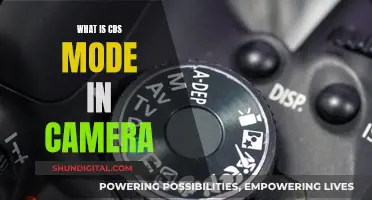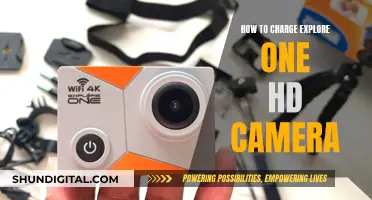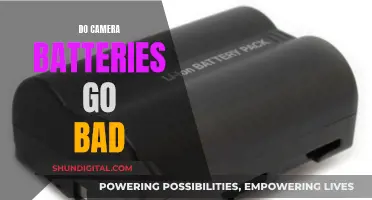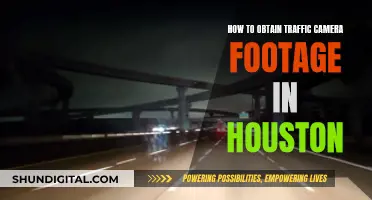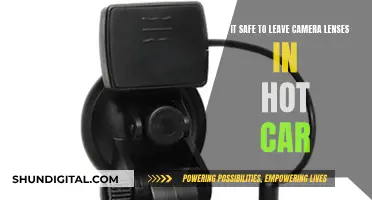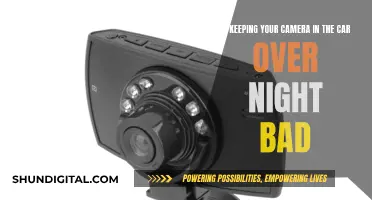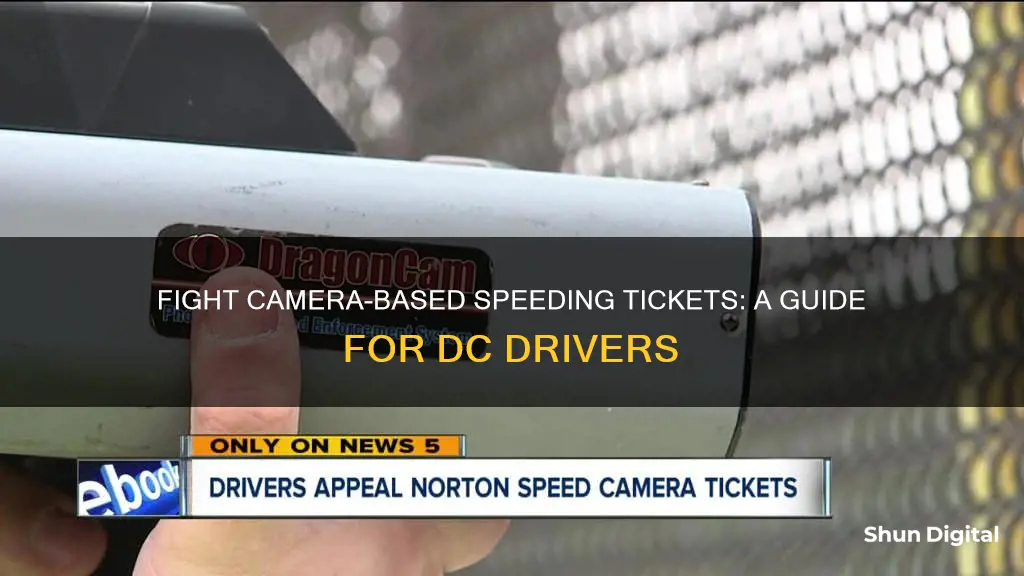
If you want to dispute a speeding ticket in DC, the first thing to do is to check the ticket details, including the date, time, and location. Make sure you were driving the car when the ticket was issued. If not, you cannot be prosecuted. Next, examine the photos received with the ticket to confirm that it is your car and that the photo is clear. If the license plate isn't clearly visible, this may be a valid defense. You must then plead not guilty by the deadline, which is typically within 30 days, and request a DMV administrative hearing to contest the ticket. You can do this by mail, online, or in person. During the hearing, you can present your defense and any supporting evidence. If you are unhappy with the hearing examiner's decision, you can submit a Motion for Reconsideration within 30 days.
| Characteristics | Values |
|---|---|
| How to dispute | Plead not guilty by writing to the traffic court, or in person at an arraignment. Request a formal hearing and research the law in your area to build a legal defense. |
| Time limit to dispute | Typically 30 days, but check the citation as the time period may be shorter. |
| Evidence | Request copies of photos and maintenance records for the camera. Research cases in your city or county about traffic cameras and check for any appellate court decisions on the legality of traffic camera tickets. |
| Defense strategies | Challenge the admissibility of the photograph as hearsay. Assert your right to confront witnesses. Dispute the authenticity of the photograph. Attack the lack of evidence, e.g. if no photos clearly show you driving. Raise other possible defenses, e.g. a necessity defense for speeding. |
| Contesting a ticket | Do not pay the fine and/or penalty. Provide all information and documentation that supports your reasons for contesting. |
What You'll Learn

Check the date, time, and location of the ticket and review the photos
When you receive a camera ticket in the mail, it's important to carefully examine the details and not rush to pay the fine. Camera tickets are usually sent to the owner of the car, not the driver, so the first step is to check the date, time, and location of the ticket to confirm that you were indeed driving the car when the ticket was issued. This is crucial because generally, the prosecutor must prove that you were driving in that specific location at the date and time indicated. If someone else borrowed your car, you cannot be prosecuted.
However, it's worth noting that some states, like New York, treat red-light camera tickets as parking violations, holding the registered owner liable rather than the driver. Therefore, it's essential to check the specific red-light law in the jurisdiction where you received the ticket.
If you were driving the car, try to recall the details of that particular trip. Reconstruct the scene and write down any relevant information you remember. For instance, you might have been making a legal right turn on a red light when the camera took the photo, which could be grounds for getting the ticket dismissed.
Additionally, when reviewing the ticket, make sure to note the exact code section you're cited for violating. Understand the elements of the law and the associated penalties for violation. Verify that the penalties listed on your ticket match those specified in the code section. Remember, it's the prosecution's responsibility to prove each element of your violation; you are not obliged to prove your innocence.
RAW vs JPEG: Understanding Camera Image Formats
You may want to see also

Plead not guilty
If you want to dispute a traffic camera ticket in DC, you must plead not guilty. This is the first step in the process of fighting your ticket. Here's a step-by-step guide on how to do it:
Step 1: Check Your Citation
Before you plead not guilty, carefully review your citation. Make sure you understand the code section you're cited for violating, and check that the penalties listed match those in the code section. You typically have 30 days to dispute the ticket, but this may vary, so note the deadline for your case.
Step 2: Plead Not Guilty by Mail, Online, or in Person
Some jurisdictions allow you to respond to the citation by mail or online, especially for less serious violations like speeding or running a red light. Check your citation to see if this is an option for you. If not, you'll need to appear in traffic court on the date and time listed. This initial appearance may be called an arraignment, first appearance, or notice hearing, depending on your jurisdiction.
Step 3: Request a Formal Hearing
When you plead not guilty, demand a full formal hearing or trial. This request may also require you to attend other hearings, such as pre-trial hearings or mediations. Attend these as required, but maintain your not guilty plea and don't accept anything less than a full dismissal.
Step 4: Gather Evidence
While you wait for your hearing, start gathering evidence to support your defence. Contact the local police department or the law enforcement agency responsible for the camera to request any photos that were not included with your citation. Also, request full maintenance records for the camera and the traffic light or speed monitoring system. If they weren't properly maintained or calibrated recently, it could help your case.
Step 5: Research Applicable Law
Look for cases in your city or county about traffic cameras and see if any appellate court decisions have ruled on their legality. Also, research other possible defences. For example, some states have specific rules about warning signs for cameras, while others recognise a necessity defence for speeding.
By following these steps, you can effectively plead not guilty and begin building your defence for disputing a camera speeding ticket in DC. Remember to act promptly, as deadlines for these processes are usually strict.
Understanding Aperture Priority Mode in Photography
You may want to see also

Request a hearing
To dispute a speeding ticket in DC, you must request a DMV administrative hearing to contest the citation. Here are the steps you can take to request a hearing:
Step 1: Understand the Process
Before initiating the hearing request, it's important to understand the process of disputing a speeding ticket. Speeding tickets in DC are typically handled by the DMV, and you have the right to contest the ticket before a hearing examiner. You can choose to contest the ticket by mail, online, or in person.
Step 2: Gather Information and Evidence
Before requesting a hearing, gather as much information and evidence as possible. Examine your ticket and make note of the date, time, and location. Check if the ticket includes photographs and review them to confirm that it's your vehicle in the image. Also, identify the exact code section you're cited for violating and understand the associated laws and penalties. If you weren't driving at the time, gather evidence to support that claim.
Step 3: Plead Not Guilty
To initiate the dispute process, you must plead not guilty. This is typically done within 30 days of receiving the ticket. You can plead not guilty by mail, online, or in person, depending on the options available in your jurisdiction. Do not pay the fine associated with the ticket, as paying the fine is considered an admission of guilt.
Step 4: Request a Hearing
Once you have pleaded not guilty, you can request a DMV administrative hearing. This is your opportunity to present your case and evidence to a hearing examiner. You may choose to attend the hearing in person or have an attorney appear on your behalf. During the hearing, the hearing examiner will review the information and evidence submitted and make a decision regarding the ticket. They may decide to uphold the ticket, reduce the fine, or dismiss the ticket based on DC Code and traffic regulations.
Step 5: Prepare for the Hearing
While waiting for your hearing date, continue to gather evidence and build your case. Request any additional documents or photographs that may be relevant to your case from the local police department or law enforcement agency responsible for the camera. Research applicable laws and cases in your city or county regarding traffic cameras. Look for any defenses that may apply to your situation, such as improperly posted warning signs or a necessity defense for speeding.
By following these steps, you can effectively request a hearing and dispute a speeding ticket in DC. Remember to act promptly, gather evidence, understand your rights, and seek legal assistance if needed to increase your chances of a favourable outcome.
How Cameras Precede Photos: A Historical Perspective
You may want to see also

Research legal defences
If you want to dispute a speeding ticket from a camera in DC, you must contest the ticket and not pay the fine. You can do this virtually, online, by mail, or in person. You must be the registered owner of the vehicle and present the vehicle registration. If the ticket was issued to a rental car, you must provide the rental agreement.
- The photo is blurry and the license plate is not clearly visible.
- There is no clearly identifiable photo of you in the driver's seat.
- The camera and speed detection equipment were not maintained or calibrated properly.
- The prosecution cannot prove that you were driving.
- The warning signs for the camera were obscured or not present.
- You were speeding out of necessity to avoid harm to yourself or others.
- The photograph is hearsay and should not be admitted as evidence.
- You were making a legal manoeuvre, such as a right turn on red.
Defender Cameras: Where Are They Manufactured?
You may want to see also

Present your case
If you believe a ticket was issued in error, you may contest it and request a dismissal. To do so, provide the DC DMV with all the information and documentation that supports your reasons for contesting.
If you were not driving the car when the ticket was issued, make a note of this. Generally, the prosecutor must prove that you were driving in that location at that date and time. If someone else borrowed your car, you cannot be prosecuted.
If you were driving, try to reconstruct the scene and remember what you were doing or what was happening at the time, and write down any details you remember. For example, you may have been making a legal right turn on red when the camera took the photo. If you were making a legal manoeuvre, you should be able to get the ticket dismissed.
Make sure you understand the law and the penalties for violation. Remember that it is the prosecution's burden to prove each element of your violation – it's not your responsibility to prove that you didn't do it.
If the notification you received included photos, review them to confirm that it is your car in the photo, and that the photo is clear. If the license plate isn't clearly visible, it may be difficult to confirm that the car is yours. If there's no clearly identifiable photo of you in the driver's seat, you can argue that the prosecution can't prove you were driving.
If you have a camera ticket for speeding, the company or officer who maintained the camera and the speed detection equipment must appear in court to testify or the photo has no foundation to be admitted into evidence. For the prosecution to rely on the photos, it must present evidence that the camera, the system that connected it to the traffic light, and the traffic light itself were functioning properly.
If the photos are clear and the judge allows them, but none of them clearly show you driving, you have a defence that the prosecution cannot prove it was you driving the car.
Wyze Cameras: Made in China?
You may want to see also
Frequently asked questions
You must either pay the fine or contest the ticket. To contest the ticket, you can request a DMV administrative hearing. You must appear at the hearing with a copy of your police report that you have previously filed with the Metropolitan Police Department. If you are unhappy with the hearing examiner's decision, you may submit a Motion for Reconsideration within 30 days of the decision.
If you do not take action, you will receive a penalty on top of the citation.
You can file an adjudication request for the ticket.


